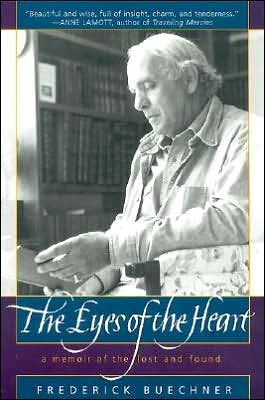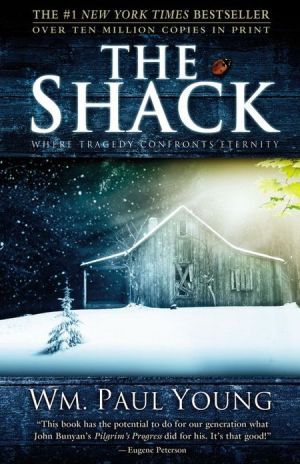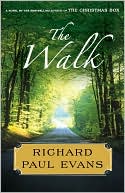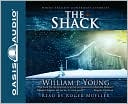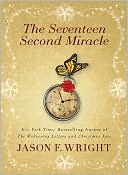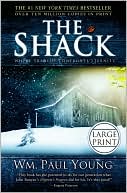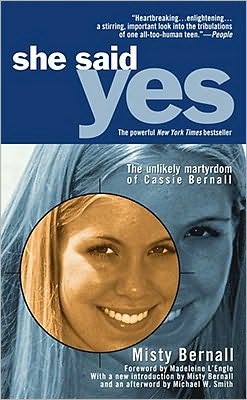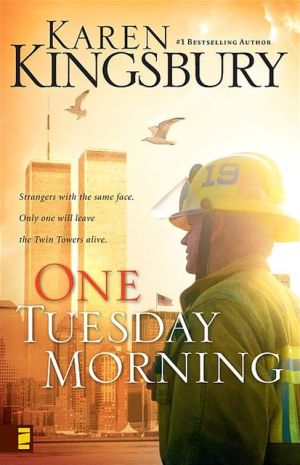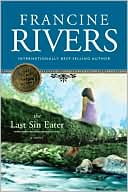Eyes of the Heart: A Memoir of the Lost and Found
From critically acclaimed author and Pulitzer Prize runner-up Frederick Buechner comes another powerfully honest memoir, The Eyes of the Heart. Full of poinant insights into his most personal relationships, this moving account traces how the author was shaped as much by his family's secrets as by its celebrations.Within the innermost chambers of his consciousness, Buechner, in his characteristically self-searching style, explores the mysteries and truths behind his deepest connections to...
Search in google:
From critically acclaimed author and Pulitzer Prize runner-up Frederick Buechner comes another powerfully honest memoir, The Eyes of the Heart. Full of poinant insights into his most personal relationships, this moving account traces how the author was shaped as much by his family's secrets as by its celebrations.Within the innermost chambers of his consciousness, Buechner, in his characteristically self-searching style, explores the mysteries and truths behind his deepest connections to family, friends, and mentors. Extraordinarily moving, this memoir follows not chronology but the converging paths of Buechner's imagination and memory.Buechner invites us into his library-his own Magic Kingdom, Surrounded by his beloved books and treasures, we discover how they serve as the gateway to Buechner's mind and heart. He draws the reader into his recollections, moving seamlessly from reminiscence to contemplation. Buechner recounts events such as the tragic suicide of his father and its continual fallout on his life, intimate and little-known details about his deep friendship with the late poet James Merrill, and his ongoing struggle to understand the complexities of his relationship to his mother.This cast of characters comprised of Buechner's relatives and loved ones is brought to vibrant life by his peerless writing and capacity to probe the depths of his own consciousness. Buechner visits his past with an honest eye and a heart open to the most painful and life-altering of realizations. heartbreaking and enlightening, The Eyes of the Heart is a treasure for any who have ever pondered the meaning and mystery of their own past.As "one of our finest writers," according to author Annie Dillard, Frederick Buechner provides yet another chapter in the tale of his life in this gripping memoir tracing the complicated roots and path of his inner life and family, with their multitude of intersections." The Eyes of the Heart stands as a touching testimonial to the significance of kinship to the author as well as to the legions of readers who have come to regard him as one of their own.Publishers WeeklyIts cloying title aside, this fourth memoir by the Pulitzer Prize-nominated author (Godric) is elegant, understated and elegiac. As the reader is guided through the author's library--his "Magic Kingdom"--various books, manuscripts and mementos become the stimulus for meditations about Christian faith and about the people who have touched his life. We read at length about the folly of writing a novel about Jesus; to do so, the ordained minister writes, "would be to cheapen and somehow dishonor the bond between us." We see the author's father--who committed suicide at the age of 38--not only as a distant figure, alcoholic and adulterous ("the empty place at [the] center" of Buechner's childhood), but as a charismatic Princeton alumnus who once seemed so full of promise. The memoir's penultimate chapter is a tribute to the author's beloved brother, Jamie, who died as Buechner was finishing the book--he had called and said he had "incurable cancer of virtually everything and didn't intend to be around for more than two weeks if he could possibly help it." Such a moment--a pitch-perfect blend of tenderness and sardonic lyricism--typifies the poetic intensity of the memoir. Also of note is the second chapter, about Buechner's friend, the late poet James Merrill, who appears in the author's dreams: "and it is always goodbye that we are saying again as if to make up for never having had the chance to say it properly." Acknowledging at once the intensity of their bond and the married minister's puzzlement at the alien pleasures of an unapologetically homosexual man, this chapter exemplifies the memoir's adroit equipoise, unsparing and loving at once. (Dec.) Copyright 1999 Cahners Business Information.
Chapter One\ I bring Naya into the Magic Kingdom. Naya is my grandmother, my mother's mother, who diedin 1961 in her ninety-fourth year. She walks across the green library carpet and stands at the window looking out across the stream toward my wife's vegetable garden and the rising meadow behind it with a dirt track running through it up into the sugar woods on the hillside.\ The Magic Kingdom is my haven and sanctuary, the place where I do my work, the place of my dreams and of my dreaming. I originally named it the Magic Kingdom as a kind of joke—part Disneyland, part the Land of Oz—but by now it has become simply its name. It consists of the small room you enter through, where the family archives are, the office, where my desk and writing paraphernalia are, and the library, which is by far the largest room of the three. Its walls are lined with ceiling-high shelves except where the windows are, and it is divided roughly 'in half by shoulder-high shelves that jut out at right angles from the others but with an eight-foot space between them so that it is still one long room despite the dividers. There are such wonderful books in it that I expect people to tremble with excitement, as I would, on entering it for the first time, but few of them do so because they don't know or care enough about books to have any idea what they are seeing.\ They are the books I have been collecting all my life, beginning with the Uncle Wiggily series by Howard R. Garis. In 1932, when I was six, I sent my unfortunate mother all over Washington, D.C., looking for Uncle Wiggily's Ice Cream Party, but she never found it, and it wasn't until about sixty yearslater that I finally located a copy and completed the set. There are first editions of all the Oz books, some of them the same copies I read as a child, with "Frebby Buechner" scrawled in them because I was less sure about the difference between b's and d's in those days than I have become since, and also of both Alice in Wonderland and Alice Through the Looking Glass, with a later edition of each signed by the original Alice herself when she came to this country in 1932 as an old lady to receive an honorary doctorate from Columbia University on the centenary of Lewis Carroll's birth. Underneath her academic robes she wore a corsage of roses and lilies of the valley and in her acceptance speech said she would prize the honor "for the rest of my days, which may not be very long." She died in 1934 at the age of eighty-two. There is a drab little Jenny Wren of Dickens's A Christmas Carol as first published in 1843 with green endpapers and the four hand-colored, steel-engraved plates by John Leech, and a Moby Dick or The Whale in the original shabby purple-brown cloth with the "usual moderate foxing" throughout, as the catalogue description apologetically notes. There are a number of seventeenth-century folios, including the sermons of Lancelot Andrewes, Jeremy Taylor, and John Donne, that I started buying when my wife and I were on our honeymoon in England in 1956 with some British royalties that were due me then. There is North's Plutarch and Florio's Montaigne and the first collected edition of Ben Jonson, 1692, which I was beside myself with excitement to discover bore the inscription Jo: Swift, Coll Nova in an eighteenth-century hand, only to learn from the British Museum years later that it was not, as I'd wildly hoped, the great Jonathan but one John Swift, who matriculated at New College, Oxford, at the age of fifteen.\ On the walls are the framed autographs of some of my heroes. There is a photograph of the portrait of Henry James that his friend Sargent painted on the occasion of his seventieth birthday, inscribed by both Sargent and the Master himself, who distributed prints of it to the faithful. Nearby Anthony Trollope has signed his name together with the words "Very faithfully" beneath a carte de visite photograph that shows him in granny glasses scowlmig through whiskers that erupt from his face like the stuffing of an old sofa—"all gobble and glare," as Henry James once described him in a letter—and there is a sepia cabinet photograph of Mark Twain on the lower margin of which he has written, "It is your human environment that makes climate," whatever exactly he meant by that. And then, matted with red damask in a gilt frame, there is the upper part of a sixteenth-century vellum document in which Queen Elizabeth, the only real Queen Elizabeth, grants permission to someone whose name I cannot make out to travel to Flanders on official business. When the trip was completed, the document was canceled with four gill-like incisions, and at the top of the page the queen signed it "Elizabeth R." Between her signature and the document's first line there are two free-floating squiggles, which my wife and I long ago decided mark where she tried out her quill pen to make sure it wouldn't spatter ink when she made the great flowing loops that fly out like pennants in the wind from the bottom of the E and Z and R and the upper staff of the B.\ On the sash of the large window at the end of the room, where Naya stands waiting for me to get on with my description, there is a stone I found wedged into a crack in the rocky ledge we stepped ashore on when I made a pilgrimage to the island of Outer Fame 'in the North Sea one summer in honor of St. Godric, who often visited there in his seafaring days in the twelfth century and about whom I had written a novel several years earlier. In the novel I describe how on his first visit to the island Godric ran into St. Cuthbert, who had died some four hundred years before, Cuthbert says that long before Godric arrived, he was expected there and then explains himself by saying, "When a man leaves home, he leaves behind some scrap of his heart. Is it not so, Godric? ... It's the same with a place a man is going to. Only then he sends a scrap of his heart ahead." When I finally managed to pry the stone loose with my pocketknife, I discovered, to my wonderment, that it was...
\ Publishers Weekly - Publisher's Weekly\ Its cloying title aside, this fourth memoir by the Pulitzer Prize-nominated author (Godric) is elegant, understated and elegiac. As the reader is guided through the author's library--his "Magic Kingdom"--various books, manuscripts and mementos become the stimulus for meditations about Christian faith and about the people who have touched his life. We read at length about the folly of writing a novel about Jesus; to do so, the ordained minister writes, "would be to cheapen and somehow dishonor the bond between us." We see the author's father--who committed suicide at the age of 38--not only as a distant figure, alcoholic and adulterous ("the empty place at [the] center" of Buechner's childhood), but as a charismatic Princeton alumnus who once seemed so full of promise. The memoir's penultimate chapter is a tribute to the author's beloved brother, Jamie, who died as Buechner was finishing the book--he had called and said he had "incurable cancer of virtually everything and didn't intend to be around for more than two weeks if he could possibly help it." Such a moment--a pitch-perfect blend of tenderness and sardonic lyricism--typifies the poetic intensity of the memoir. Also of note is the second chapter, about Buechner's friend, the late poet James Merrill, who appears in the author's dreams: "and it is always goodbye that we are saying again as if to make up for never having had the chance to say it properly." Acknowledging at once the intensity of their bond and the married minister's puzzlement at the alien pleasures of an unapologetically homosexual man, this chapter exemplifies the memoir's adroit equipoise, unsparing and loving at once. (Dec.) Copyright 1999 Cahners Business Information.\ \ \ \ \ Library JournalBuechner's fourth memoir after The Sacred Journey, Now and Then, and Telling Secrets is a hopeful rumination on family, loss, and faith. The recent deaths of the author's older brother and his lifelong friend, poet James Merrill, remind him of earlier losses--his father's suicide and the death of his beloved grandmother Naya. The birth of a grandchild forces Buechner to focus on the present, reminding him that life goes on and that forgotten familial characteristics remain for generations to come. "The Magic Kingdom," Buechner's nickname for his study, office, and library, gives him the necessary space for writing and meditating. The rooms are filled with family archives, irreplaceable books and mementos that inspire the author to connect past and present and look beyond his life to his grandchildren's future. An impressive addition to Buechner's oeuvre, which includes over 30 critically acclaimed works of fiction and nonfiction.--Pam Kingsbury, Florence, AL Copyright 1999 Cahners Business Information.\ \ \ Kirkus ReviewsA memoir of death may seem a contradiction in terms, but that is what Buechner, Presbyterian minister and prolific writer (best known for his novel Godric, 1980) has given us. Here we meet the dead who haunt his heart–his grandmother; his friend and fellow wordsmith James Merrill; his father, who committed suicide; and his brother. Buechner, trustworthy and slightly self-effacing, offers his meditations on death with a characteristically light touch. Unlike so many writers who weigh in on the ultimate questions, Buechner never winds up sounding like a pompous ass. A "hopelessly religious person," Buechner is the doubter's Christian, ever suspect of the believer whose faith life is not shot through with doubt. The Eyes of the Heart captures that skepticism: Without losing sight of his Christian convictions, Buechner wonders what will happen after he dies, asking his grandmother, who pooh-poohs the question, to describe being dead. Bibliophiles will enjoy The Eyes of the Heart because it is framed by a tour through Buechner's study; we browse through his first edition Oz books and the copy of Gone With the Wind in which Buechner's father wrote a final note to Buechner's mother. Early in the book, Buechner tells us, "There are such wonderful books in [my study] that I expect people to tremble with excitement, as I would, on entering it for the first time, but few of them do because they don't know or care enough about books to have any idea what they are seeing." It seems, at first, a throwaway line, but the image stays with you as you read, for Buechner is not just referring to books, but to God and the wonder and fragility of human life as well. One hopes in the same way thatreaders will know what they are seeing when they pick up The Eyes of the Heart.\ \
